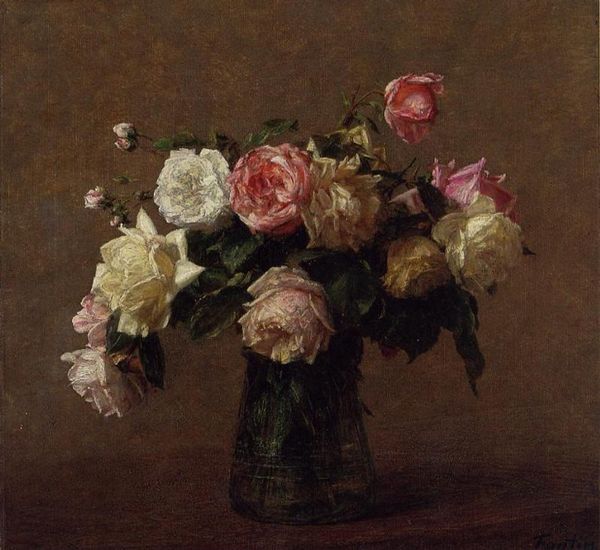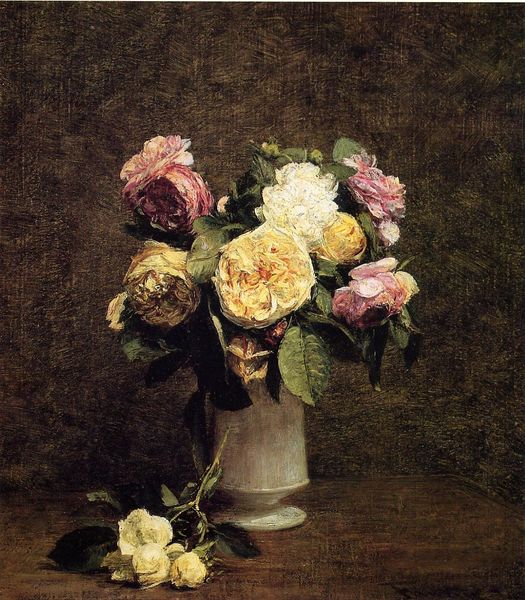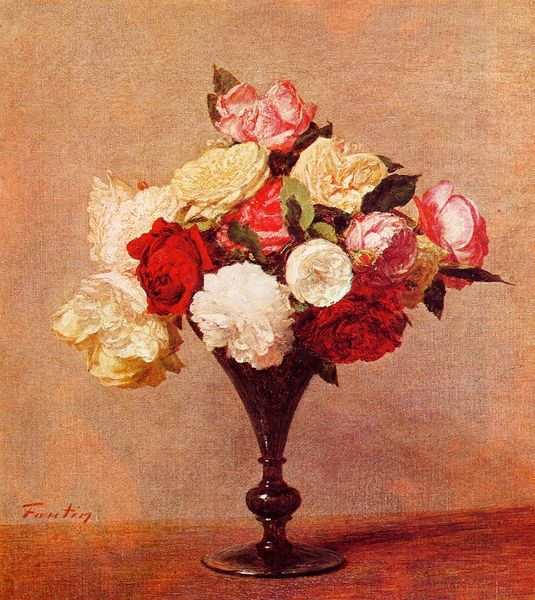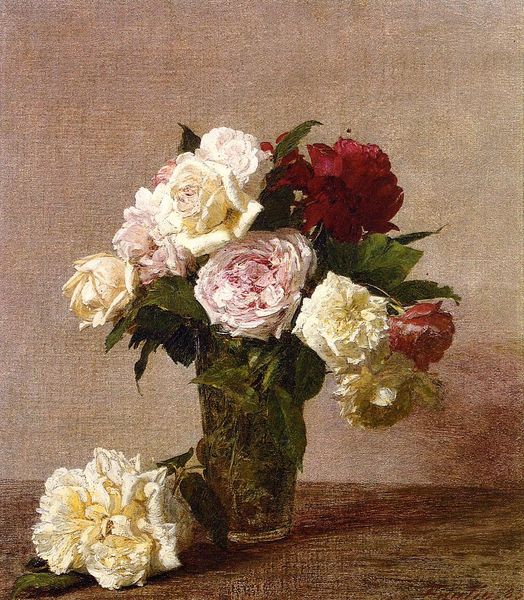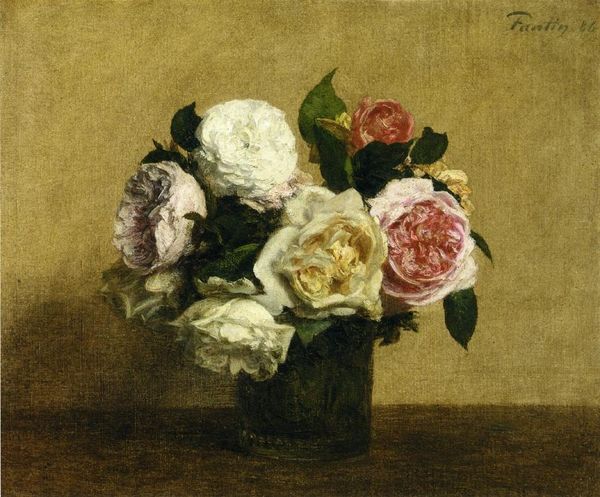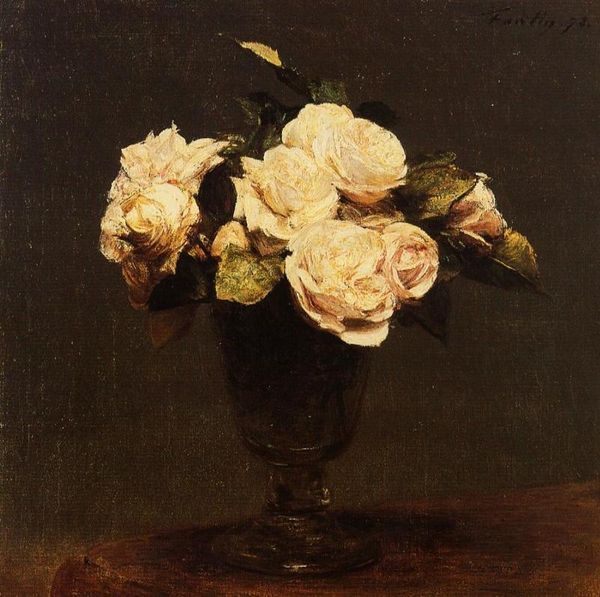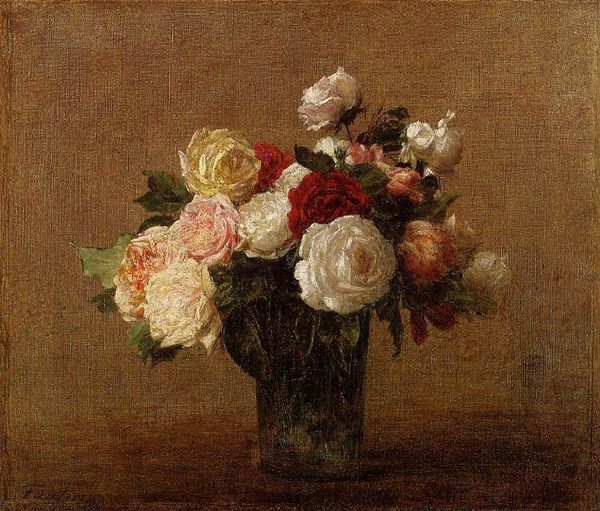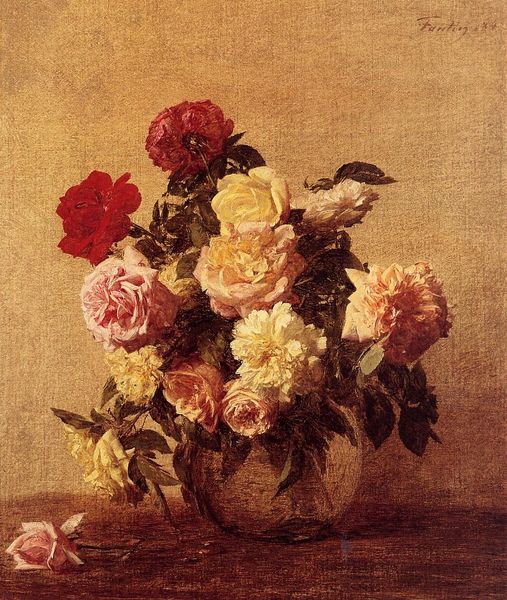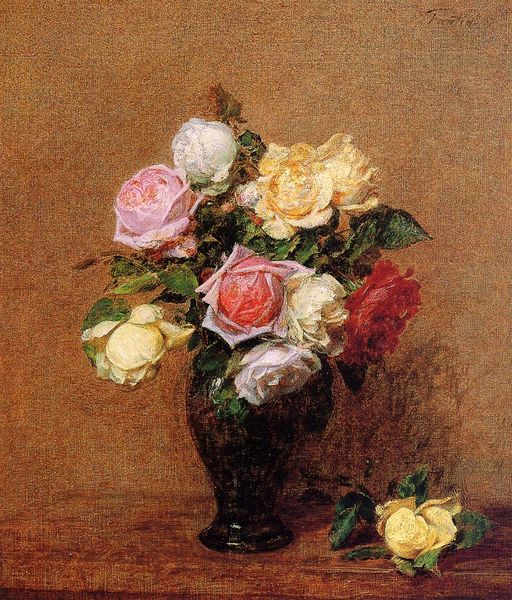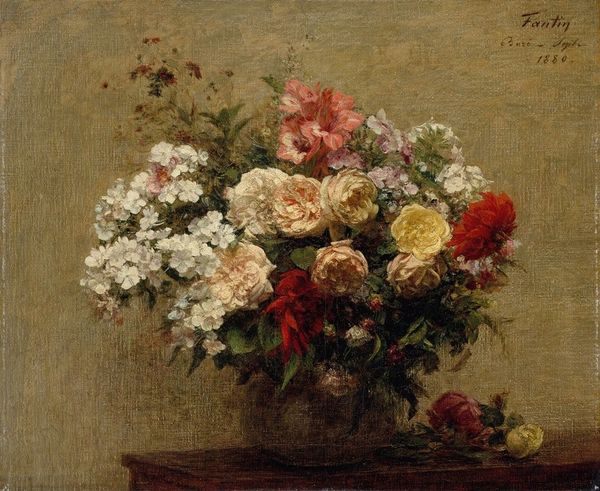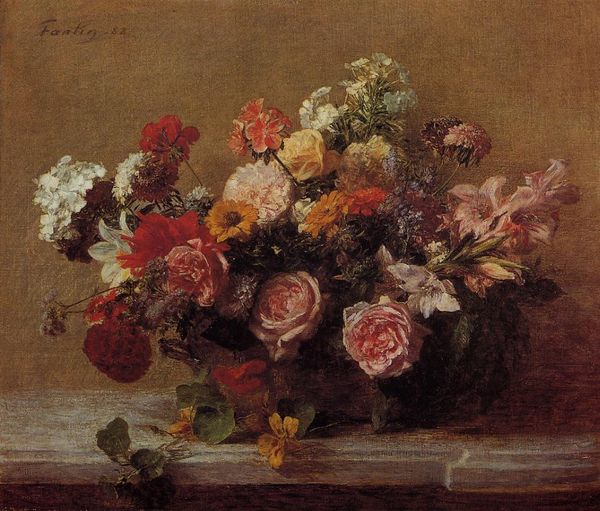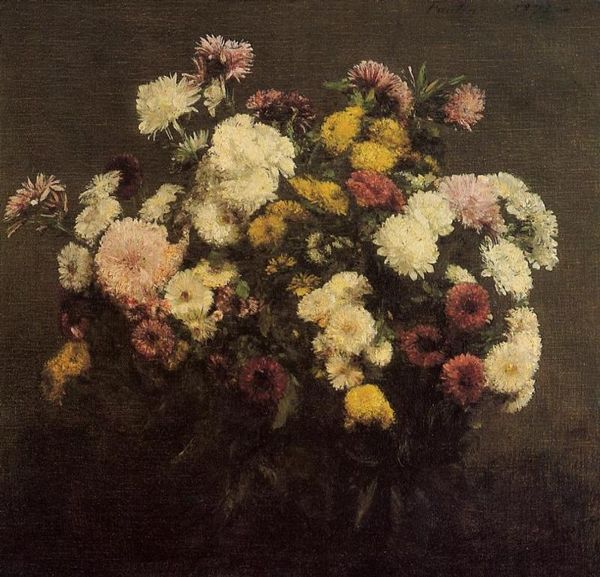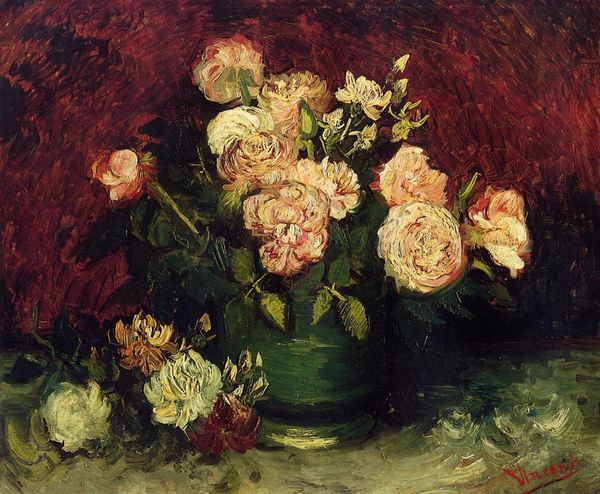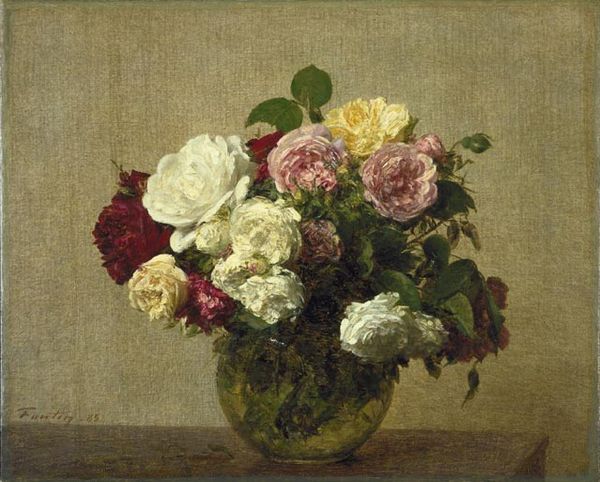
Copyright: Public domain
Editor: Right in front of us, we have "Roses," an 1894 oil painting by Henri Fantin-Latour. It strikes me as beautifully melancholic. The muted colors and almost photographic realism... How do you see it, especially considering the era it was made in? Curator: Well, let's consider the cultural context. Fantin-Latour was working during a period of immense social and political upheaval, alongside rapid industrialization and growing urban centers. The late 19th century was witnessing a profound shift in societal values and aesthetics. How do you think a painting like this responds to that? Editor: I guess the stillness is a kind of reaction? Everything's so fast-paced; this is meditative and timeless. It feels like it pushes against the grain. Curator: Precisely! Fantin-Latour focused intensely on still life, especially flowers. It might seem purely aesthetic at first glance, but think about the rise of the middle class during this time. Flowers as decor became markers of social status, reflections of taste and cultivation. This painting is as much about the domestic sphere and its values as it is about the roses themselves. Who has access to "beauty" like this? Is that access fleeting, like the blooms? Editor: So it's less a straightforward representation and more a commentary on class and social aspirations of the time? It’s a kind of quiet statement, using the familiar to talk about societal structures. Curator: Exactly! By elevating these blooms to the level of fine art, Fantin-Latour invites us to consider the public role of art itself, and what the simple act of depicting an everyday object says about who we are as a society. He makes us question whose vision, whose art, gets valued and why. Editor: I hadn't considered the painting within that socio-political frame. It adds so much depth to a seemingly simple image. Thanks! Curator: My pleasure! Looking at art through a historical lens helps us unpack those complex layers, doesn't it? It changes how we experience and understand even the most familiar subjects.
Comments
No comments
Be the first to comment and join the conversation on the ultimate creative platform.
